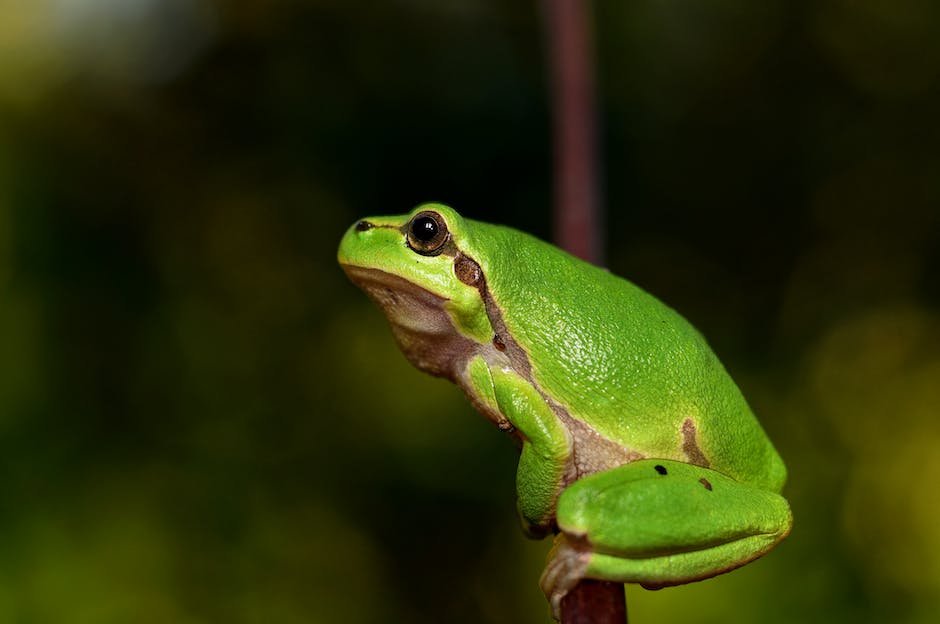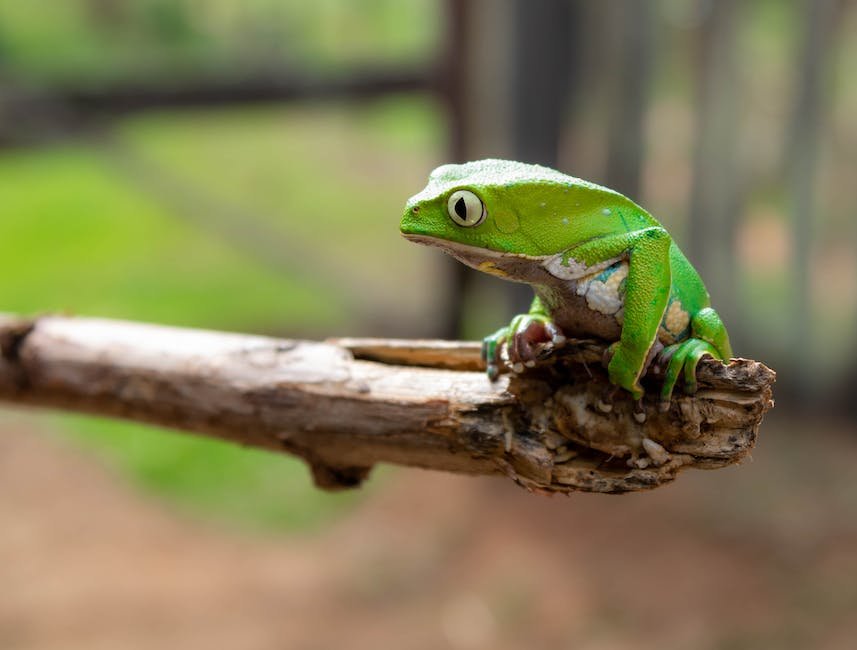Contents
Frogs are amphibians, which means they can live both on land and in water. They are born in water as tadpoles, and then they grow into adult frogs. Most frogs have webbed feet, which help them to swim. Some frogs can jump more than 20 times their own body length! Frogs are eating machines and eat almost anything they can fit into their mouths, including insects, spiders, and even small mammals.
Frogs are amphibians. They live in water and on land. They have smooth, wet skin and long legs. They can jump high and far. Some frogs can change color.
What type of animal is frog?
There are three main groups of amphibians: Anura (frogs and toads), Caudata (salamanders), and Gymnophiona (caecilians).
Most amphibians lay their eggs in water and their larvae go through a process of metamorphosis to become adults. Some species of amphibians, however, are direct developers and they bypass the larval stage.
Adult amphibians typically have four legs, a moist skin, and a pair of lungs. They are able to live on land and in water, although they must return to water to lay their eggs.
Amphibians are found all over the world and are an important part of many ecosystems. They are especially sensitive to changes in their environment and can be used as indicators of ecosystem health.
Amphibians are small vertebrates that need water, or a moist environment, to survive. The species in this group include frogs, toads, salamanders, and newts.
These creatures are important to the environment because they help to control insect populations. Additionally, amphibians are indicators of ecosystem health, so their decline can be an early warning sign of problems in an area.
Is a frog a mammal or a reptile
Frogs are not reptiles! They are amphibians, a class of animals all their own. Here’s what you need to know about these unique pets:
Frogs are cold-blooded, meaning they can’t regulate their own body temperature. They are often found near water sources, as they need to be in moist environments to prevent their skin from drying out.
Frogs have long, powerful legs that help them jump great distances. They also have sticky pads on their feet that help them climb and cling to surfaces.
Frogs have a three-chamber heart, which is unique among amphibians. The left and right sides of the heart are separated, allowing oxygen-rich and oxygen-poor blood to mix.
Frogs typically lay their eggs in water, where the tadpoles hatch and grow into adult frogs. Some species of frogs, however, give birth to live young.
If you’re thinking of getting a frog as a pet, be sure to do your research first! Some species of frogs are more delicate than others, and require special care.
Frogs are a kind of small animal belonging to a group called vertebrates, which are animals with backbones. This means that frogs live part of their lives in water and the other part on land. The word amphibian comes from two Greek words: “amphi,” which means “both,” and “bios,” which means “life.”
What are 5 facts about frogs?
Frogs are one of the most interesting creatures in the world. Here are five fun facts about them:
1. A group of frogs is called an army.
2. Frogs drink water through their skin.
3. Frogs are found all over the world.
4. The world’s largest frog species is known as the ‘Goliath Frog’.
5. A frog’s eyes and nose are on the very top of their heads.
Frogs have excellent night vision and are very sensitive to movement. The bulging eyes of most frogs allow them to see in front, to the sides, and partially behind them. When a frog swallows food, it pulls its eyes down into the roof of its mouth, to help push the food down its throat.
How long do frogs live?
What makes a good friend?
A good friend is someone who is loyal,Trust.reliable and supportive. They are someone you can count on no matter what and who will always be there for you.
Frogs are carnivorous animals and their diet consists mostly of insects. Adult frogs will eat any insects that they can catch with their long, sticky tongue. They will also eat other invertebrates such as snails, slugs, and worms. While frogs will eat just about anything that they can fit into their mouth, they do prefer to eat insects that are high in protein.
Do frogs lay eggs or live birth
Most frogs lay eggs, which develop into tadpoles. These tadpoles then metamorphose into frogs. A few species of frogs give birth to froglets, which are new tadpoles that have not yet metamorphosed. These newborn tadpoles are new to science.
The biggest difference between amphibian and reptile eggs is that amphibian eggs need to stay moist or wet as they develop, while reptile eggs need to stay dry. Another big difference is that all reptiles lay their eggs on land, often burying them, while most amphibian eggs are laid in water.
Do frogs lay eggs?
Most frogs lay their eggs in water, but there are exceptions. Frog eggs do not have a shell, so they need some kind of moisture to keep them from drying out until they hatch. Some frogs have come up with amazing ways to keep their eggs wet besides laying them directly in water.
Most amphibians have a complex life cycle that includes time on land and in the water. Their skin must stay moist in order to absorb oxygen, and as a result, they lack scales. In contrast, reptiles have dry skin that is covered in scales. Turtles, snakes, lizards, alligators, and crocodiles are all reptiles.
Do frogs have teeth
Frogs are a diverse group of animals, and their teeth (or lack thereof) reflect that. Some species have tiny teeth on their upper jaws and the roof of their mouths, while others sport fang-like structures. Some are completely toothless. And only one frog, out of the more than 7,000 species, has true teeth on both upper and lower jaws. This diversity is one of the things that makes frogs so interesting and fun to study!
Frogs swim by kicking water backwards with their webbed feet. Usually, they kick with both hind legs simultaneously (in-phase swimming), but Nauwelaerts and Aerts find that in slow swimming the hind legs move alternately (out-of-phase swimming).
Are frogs happy animals?
Frogs are interesting creatures that are often misunderstood. Though they look simple, they are actually very complex emotionally. Frogs can feel a range of emotions, from happiness to fear, and they process these emotions differently than humans do.
Frogs have a very sensitive nervous system that allows them to navigate their environment and sense feelings. These feelings often revolve around safety, pain, and fear. For example, a frog may become scared if it senses a predator nearby. Or, if a frog is hurt, it may feel pain and try to escape.
Though frogs have different emotional processing than humans, they are still capable of feeling a range of emotions. This makes them unique and interesting creatures to study.
Frogs use a variety of sounds and gestures to communicate with one another. Some frogs have a more extensive “vocabulary” than others, and can combine different vocalizations with different gestures to create specific meaning. For example, a frog might use a certain sound to attract a mate, while using a different sound to warn off an intruder on its territory. By understanding the different sounds and gestures that frogs use, we can better understand their communication.
Are frogs danger
If you encounter an amphibian, it is important to exercise caution as some of them produces potent toxins. These include digoxin, tryptamines, and tetrodotoxin, which can cause irregular heart rhythm, dizziness, cardiac arrest, and paralysis.
Frogs are amphibians. They can survive on land as well as in water. They breathe on land using their lungs and breathe underwater using their moist skin.
Do frogs help humans
Frogs are one of the many creatures on this earth that help us in more ways than we may realize. They eat mosquitoes, which can help reduce the risk of diseases being spread by these insects. They also provide us with medical advances; their skin has been found to contain properties that could help in the development of new antibiotics. Additionally, frogs serve as food for birds, fish and monkeys, and their tadpoles help filter our drinking water. We should be grateful for the many ways that frogs help us, and do our part to protect them.
Frogs are amphibians and have many characteristics that make them unique. For example, frogs have to close their eyes to swallow and their eyes are sometimes in their mouth. Additionally, frogs don’t have rib cages and most can jump 20 times their body length. Frogs also breathe through their skin and some change color. Frogs live on every continent except Antarctica and many species are critically endangered.
How do frogs see us
Frogs have excellent night vision and are very sensitive to movement. They can see in front, to the sides, and partially behind them. When a frog swallows food, it pulls its eyes down into the roof of its mouth.
Frogs sleep in different postures, locations, and times Some species tuck their limbs under their bodies and cover their eyes with a membrane (similar to an eyelid) Terrestrial species, like toads, burrow into the substrate. This happens at all times of the day but frogs are most active at night.
Warp Up
Frogs are amphibians. They live in water and on land. They have moist, scaleless skin and long hind legs for jumping. Most frogs have webbed feet. Some frogs can climb trees.
Frogs are amphibians, which means they can live both in water and on land. They have smooth, damp skin and long, powerful legs for jumping. Some frogs can jump as high as 20 times their own body length! Most frogs lay eggs in water, where the tadpoles (baby frogs) hatch and live until they are big enough to leave the water and live on land like their parents.

0 Comments